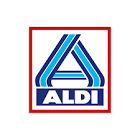ALDI Einkauf GmbH & Co. oHG (Aldi Nord)

Estimated electricity consumption
N/A
Countries of production presence
N/A
ALDI Einkauf GmbH & Co. oHG, commonly known as Aldi Nord, is a German discount supermarket chain that operates in the Food & Beverage Wholesalers sector. Founded in 1913 by brothers Karl and Theo Albrecht, Aldi Nord has grown to become one of the largest discount retailers in the world, with over 6,000 stores across 11 countries.
As a company, Aldi Nord has a strong commitment to sustainability and decarbonisation. In recent years, the company has made significant investments in renewable energy and has implemented a number of initiatives to reduce its carbon footprint.
One of the key ways in which Aldi Nord is working towards decarbonisation is through the use of corporate power purchase agreements (PPAs). A corporate PPA is an agreement between a company and a renewable energy provider, whereby the company agrees to purchase a certain amount of renewable energy from the provider over a set period of time. By entering into a PPA, companies like Aldi Nord can ensure a stable and predictable source of renewable energy, while also supporting the growth of the renewable energy sector.
In 2019, Aldi Nord signed its first corporate PPA with wind energy provider wpd. Under the agreement, Aldi Nord will purchase 100 GWh of wind energy per year from wpd's Butendiek offshore wind farm in the North Sea. This represents a significant step towards Aldi Nord's goal of sourcing 80% of its energy from renewable sources by 2020.
In addition to its use of corporate PPAs, Aldi Nord is also investing in its own renewable energy infrastructure. The company has installed solar panels on the roofs of many of its stores, as well as on the roofs of its distribution centres and offices. In total, Aldi Nord has installed over 50,000 solar panels, generating over 26,000 MWh of renewable energy per year.
Aldi Nord is also working to reduce its energy consumption through a number of energy efficiency initiatives. The company has implemented a range of measures to reduce energy use in its stores, including the installation of LED lighting, the use of energy-efficient refrigeration systems, and the implementation of energy management systems. These measures have helped to reduce Aldi Nord's energy consumption by over 30% since 2012.
In addition to its focus on renewable energy and energy efficiency, Aldi Nord is also committed to reducing its carbon footprint through sustainable sourcing practices. The company has set ambitious targets to reduce greenhouse gas emissions across its supply chain, including a commitment to source 100% of its cocoa, coffee, tea, and palm oil from sustainable sources by 2020.
Overall, Aldi Nord's commitment to sustainability and decarbonisation is a key part of its corporate strategy. Through its use of corporate PPAs, investment in renewable energy infrastructure, and focus on energy efficiency and sustainable sourcing, the company is working towards a more sustainable future. As the world continues to grapple with the challenges of climate change, companies like Aldi Nord will play an increasingly important role in driving the transition to a low-carbon economy.